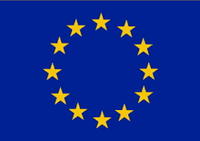The European Commission released on 26 October 2005 containing a
comprehensive plan on EU-wide taxation and customs measures to achieve the so-called Lisbon objectives .
Based on the plans disclosed and the planning for 2006, the following is a summary of the EU Commission actions in the tax field expected to be adopted in the next months:
Community Customs Code
2004/TAXUD/015
Expected timeframe: Nov-05
Type of proposal or act: Proposal for a Regulation of the European Parliament and of the Council amending Council Regulation (EEC) No 2913/92 establishing the Community Customs Code.
Brief Description: The e-customs initiative aims to modernise and simplify customs rules and procedures and to reduce costs for traders. It represents a positive contribution to the Lisbon strategy.
Uniform application of VAT rules
2004/TAXUD/012
Expected timeframe: 4th quarter 2005
Type of proposal or act: Proposal for the implementation of a mechanism for eliminating double taxation in individual cases, under the Sixth VAT Directive.
Brief Description: The Commission intends to introduce a multilateral mechanism to resolve the problem of individual cases of double taxation under the Sixth VAT Directive. This will not deal with differing interpretations of the Sixth Directive, since this is a matter to be resolved either in the VAT Committee or ultimately by the Court. It is instead aimed at cases where different national administrations interpret the nature of a supply differently which then leads to divergent and sometimes conflicting tax treatment. Experience has shown that bilateral double taxation agreements, which provide for a procedure to eliminate double taxation in the direct tax field simply by getting the national authorities of the States concerned to discuss a case, very often result in a settlement. Accordingly, the Commission would like to see similar arrangements introduced in the Sixth VAT Directive.
Agreement with Japan on customs co-operation
2005/TAXUD/002
Expected timeframe: 4th quarter 2005
Type of proposal or act: Agreement with Japan on customs co-operation and mutual administrative assistance in customs matters TAXUD 4th quarter 2005
Brief Description: In April 1993 the Council adopted a Decision authorising the Commission to negotiate a customs cooperation agreement on behalf of the Community with Japan. The Council lays down that such negotiations shall be conducted in accordance with the afore-mentioned Decision. The Directives of the Decision are being followed for the negotiations of an agreement between the Government of Japan and the European Community on co-operation and mutual administrative assistance in customs matters According to the mandate of the Council, the scope of the agreement in the field of co-operation covers: legislative co-operation, aiming at simplification and harmonisation of customs procedures; technical assistance, would cover the computerisation of customs procedures and formalities, exchange of officials, and mutual administrative assistance, aiming at exchanging information for fighting against frauds and irregularities.
Home State Taxation pilot project
2004/TAXUD/007
Expected timeframe: nov-05
Type of proposal or act: Commission recommendation concerning the experimental application of the Home State Taxation approach for the corporate tax treatment of the EU-wide activities of interested small and medium-sized enterprises
Brief Description: The concept of "Home State Taxation" provides in simple terms that the profits of a group of companies active in more than one Member State should be computed according to the rules of one company tax system only, the system of the Home State of the parent company of the group. Each participating Member State would continue, however, to tax at its own corporate tax rate its share of the profits of the group’s business activities in that State. This approach addresses precisely the tax issues, which hamper SMEs most in their cross-border activities: disproportionately high tax compliance costs resulting from the administrative tax formalities, bookkeeping requirements etc.; current difficulties with the cross-border offsetting of losses.
Environmental taxes
2003/ENV+/28
Expected timeframe: 4th quarter 2005
Type of proposal or act: Communication on the use of economic instruments within the environmental policy of the internal market
Brief Description: The Communication will update the 1997 Communication on environmental taxes and charges, and widen its scope to incude tradable permits and the new guidelines on State aid for environmental protection. It will analyse the existing rules in the above areas, their consistency and mutual influence as well as their impact on the use of MBI by Member States. It will also explore the opportunities for measures to further promote the use of MBI at EU level.
Standardised EU-wide transfer pricing documentation
2005/TAXUD/012
Expected timeframe: Nov-05
Type of proposal or act: Communication to the Council on the report of activities of the EU Joint Transfer Pricing Forum and a proposal to create a Code of Conduct on a common approach to transfer pricing documentation for associated enterprises in the EU.
Brief Description: The will present its activity report and its conclusions after its second year of activity on issues related to transfer pricing documentation requirements in the EU. Following this report and in line with its taxation policy foreseeing soft law initiatives where appropriate, the Commission may propose a Council recommendation to Member States to implement the conclusions of the Forum and to establish a global standardised EU-wide transfer pricing documentation policy. Standardising transfer pricing documentation requirements in the EU is aiming at substantially reducing business compliance cost and thus strengthening their global competitiveness.
Mutual assistance for the recovery of claims
2005/TAXUD/009
Expected timeframe: 4th quarter 2005
Type of proposal or act: Report from the n of Directive 76/308 76/308/EEC on mutual assistance for the recovery of claims
Brief Description: Biennially report on the use made of the recovery arrangements and on the results achieved
Customs 2013 programme
2006/TAXUD/001
Expected timeframe: 2006
Type of proposal or act: Decision on the renewal of an Action Programme for Customs in the Community (Customs 2013)
Brief Description: The Customs 2013 programme is the successor of the Customs 2007 programme and has as objective to further improve cooperation between tax administrations. The Customs programme will continue to develop and modernise the trans-European computerised systems that underpin the implementation of customs policy. The Customs 2013 programme will tackle a number of new challenges, such as securing the supply chain and support for the use of a common risk management system, while promoting the incorporation of risk management into all aspects of customs work. Customs 2013 will continue to support activities to protect traders from piracy and counterfeiting. The Customs programme will also support the further development of initiatives to set up a paperless electronic customs environment while underpinning indispensable initiatives such as modernisation and simplification of the customs legislation.
Fiscalis 2013 programme
2006/TAXUD/002
Expected timeframe: 2006
Type of proposal or act: Decision on the renewal of a Community programme to improve the operation of the taxation systems in the internal market (Fiscalis 2013)
Brief Description: The Fiscalis 2013 programme will continue to support initiatives that focus on improving the proper functioning of taxation systems in the internal market by increasing cooperation between participating countries, their administrations and officials. It will raise awareness of relevant Community law and encourage Member States to share experience of implementing Directives. The programme will also encompass tools to help combat harmful tax competition and tax fraud, both within the EU and in relation to third countries. To support administrative cooperation and mutual assistance between tax administrations, the programme will develop and modernise the trans-European computerised networks required for the exchange of information for control purposes, such as the VAT Information Exchange System (VIES) and the Excise Movement Control System (EMCS).
EU anti-tax fraud strategy
2006/TAXUD/003
Expected timeframe: 2006
Type of proposal or act: Communication of the Commission to the European Parliament on a strategy to improve the fight against tax fraud
Brief Description: The purpose of the communication is to launch a debate on an overall anti-tax fraud strategy at EU level. The responsibility for control and anti-fraud work is clearly a matter for the Member States. The role of the Commission is to provide an appropriate legislative framework at Community level and to facilitate co-operation between Member States. A communication is therefore the appropriate tool to launch the debate. However, achieving the objective of the anti-fraud strategy will probably require both legal and non-legal activities at a later stage
Other future developments expected:
- Communication on cross-border loss relief in the EU (1st half of 2006)
- Legislative proposal to adapt the VAT financial services rules to the evolution of the single financial market (end of 2005 - beginning of 2006)
- Recast of the Capital Duty Directive (end of 2006)
- Communication providing guidance on R&D tax incentives (2006).
- Communication on a strategy against counterfeiting (2005)
- Legislative proposal on VAT public bodies, (end of 2006)
- A new strategy for car taxation (2005)
- Legislative proposal on Common Consolidated Corporate Tax Base for EU businesses (2008)












